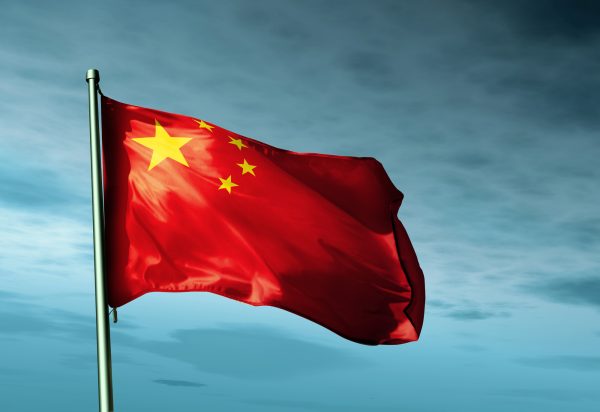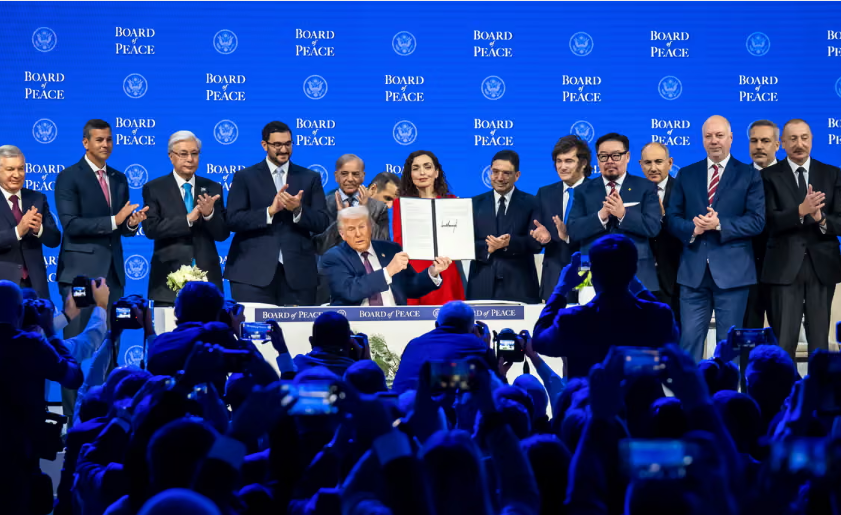The Ukraine War Might Kill China’s Nuclear No First Use Policy
China and India are the only nuclear-armed countries in the world with a nuclear “no first use” policy (NFU). Beijing pledges that in the event of a conflict, China would use its nuclear weapons only after an enemy nuclear strike against China. It is in the interest of the United States and other potential adversaries that China maintain NFU, which is a unilateral Chinese strategic self-restriction. China’s NFU, however, is increasingly under strain, and the Ukraine war might provide the final persuasive impetus for Chinese leaders to dump the policy.
Strategists in China are already questioning the usefulness of NFU, proclaimed in 1964, in an era when China is a nascent great power confidently moving to change the strategic status quo in the Asia-Pacific region.
NFU seems disconnected from the dramatic expansion of China’s nuclear capabilities. The U.S. Department of Defense assesses that China’s estimated total of 250 nuclear warheads will likely increase to 1,000 by 2027. China recently demonstrated hypersonic glide vehicle and fractional orbital bombardment capabilities and is shifting its readiness posture toward keeping some of its missiles loaded with nuclear warheads in peacetime.
Chinese analysts who dislike NFU have argued that China is already at a nuclear disadvantage vis-a-vis the United States, which has a much larger arsenal, and therefore cannot afford the additional disadvantage of unilaterally restricting its own options through NFU. NFU takes away the option of attempting to block an unwanted move by an adversary by credibly threatening to escalate to the use of a tactical nuclear weapon in certain circumstances.
Diplomat Brief Weekly Newsletter N Get briefed on the story of the week, and developing stories to watch across the Asia-Pacific. Get the Newsletter
Furthermore, some enemy military attacks against China using conventional weapons could produce damage comparable to an attack by a tactical nuclear weapon. An example is a hypothetical strike on the Three Gorges Dam, which could cause massive death and destruction. Hence, some analysts argue that China should not base its policy on a meaningless distinction between the most powerful conventional weapons and a small nuclear weapon.
Enjoying this article? Click here to subscribe for full access. Just $5 a month.
Finally, some Chinese analysts have already suggested that a “large-scale foreign military intervention” attempting to impede China’s conduct of a “war of safeguarding national unity” – obviously referring to a Taiwan Strait war scenario – should be an exception to NFU.
NFU would not be the first principle Beijing discarded because it had become obsolete. For example, during the Cold War the Chinese government proudly cited its lack of foreign military bases as proof of China’s benevolence, in contrast to “imperialist” countries such as the United States that had many overseas bases. That stance became non-viable as China grew into a major economic power with global interests that needed protecting. Beijing has dropped this position since acquiring its first unambiguous foreign base, in Djibouti, in 2017. More are on the way.
There is also precedent for Beijing interpreting, or re-interpreting, principles in a way that effectively negates them in practical policy terms. In 2015, Chinese leader Xi Jinping told U.S. President Barack Obama that “China does not intend to pursue militarization” of its newly-built artificial islands in the South China Sea. Americans understood that to mean China would not turn them into military bases. Subsequently, however, the Chinese placed fighter jets, anti-aircraft and anti-ship missiles, and signals jamming equipment on the artificial islands. Shortly after the Obama-Xi summit, a Chinese government spokesperson had explained that not “militarizing” the islands would not preclude the installation of “necessary military facilities for defense purposes only.” She added, “There is no such thing [as] China ‘militarizing’ relevant islands and reefs.” Beijing had stated what seemed a clear principle but then defined it in a way that justified behavior that seemingly violated the principle.
Some U.S. observers have long been skeptical about Beijing’s willingness to honor NFU in practice. Statements by People’s Liberation Army generals have sometimes stoked this skepticism, even if misunderstood. One well-known anecdote involves a Chinese general, often identified as Xiong Guangkai, reportedly telling U.S. Assistant Secretary of Defense Chas Freeman in 1996 that China was confident U.S. forces would not try to stop China’s military conquest of Taiwan because Americans “care more about Los Angeles than they do about Taiwan,” seemingly implying that China would respond to a conventional conflict by nuking a city on the U.S. mainland – and also implying that the PLA did not take NFU seriously. Freeman, however, later clarified that what his Chinese interlocutor actually said was that unlike during the 1950s, the United States could no longer expect to cow China with nuclear threats because China now has its own nuclear retaliatory capability. It was not a disavowal of NFU, even if many Americans mis-remember it that way.
In 2005, PLA Major General Zhu Chenghu told a group of visiting Hong Kong journalists that China would use nuclear weapons if the United States intervened in a cross-strait military conflict. Zhu was then a professor at China’s National Defense University, not directly involved in formulating China’s military policy. The Chinese government reportedly reprimanded him for speaking out of turn.
There are several aspects of the Ukraine War that should discourage China from attempting to forcibly annex Taiwan. Ukraine has put up a surprisingly tough fight against a much larger and better-armed opponent, thwarting some of Russia’s apparent objectives. The swiftness and harshness of international sanctions to punish Russia for its aggression, even by countries that do significant business with Russia, was also surprising. And the war has jolted Taiwan into making better preparations against a possible military attack from China.
At the same time, however, the Chinese government saw the Russians demonstrate the utility of threatening to escalate to the use of nuclear weapons. Just before invading Ukraine on February 24, Putin publicly warned that “whoever tries to interfere” would suffer “consequences that you have never experienced in your history,” a thinly veiled reference to nuclear weapons. That threat colored NATO’s early response to the war. Discussions of the risks of a no-fly zone highlighted the danger that Russian President Vladimir Putin would retaliate with a nuclear strike. Former U.S. ambassador to NATO Kurt Volker lamented that “we have been intimidated by Russia, fearing that [Putin] might reach for a nuclear weapon.”
Beijing’s main concern in a Taiwan Strait war is the likelihood of U.S intervention, which would probably also bring in Japan as a combatant against China. Keeping the United States and Japan out of the conflict would dramatically increase the PLA’s prospects for victory. Xi’s advisers might believe there is a fair chance that if Beijing issued a Putin-like threat to go nuclear if the U.S. military got involved, Washington would decide the risk of losing a U.S. city or even an aircraft carrier battle group is unacceptable.
This thinking would build on the premise that China enjoys an asymmetry of commitment: for Beijing, Taiwan is a piece of Chinese territory and a litmus test of the CCP’s fitness to rule China, while for Washington, Taiwan is only one of many security partners in a region far from the U.S. homeland. The CCP government is therefore prepared to sacrifice millions of lives to annex Taiwan, while it doubts whether Americans could continue fighting a war that resulted in the loss of a single capital ship.
If Beijing decides it is willing to issue a nuclear threat in the hope that this will win a cross-strait war for China, it must dispense with the obstacle of NFU. The Chinese government could announce an amendment to NFU stipulating that it does not apply to the Taiwan situation or, more generally, to cases of foreigners using military force to “split Chinese territory” – in other words, a “no first use” policy that actually allows for first use. Alternatively, Beijing could say it is dropping NFU altogether, justifying the change as appropriate for China’s new great power status and necessary to counter alleged intensified U.S. efforts to “contain” China.
Enjoying this article? Click here to subscribe for full access. Just $5 a month.
If it abrogated NFU, the Chinese government would correctly claim that China was only bringing its policy in line with those of the other nuclear powers. But this development would be ugly indeed if inspired by Putin’s war in Ukraine and if intended to facilitate a new and equally odious war to conquer Taiwan.













